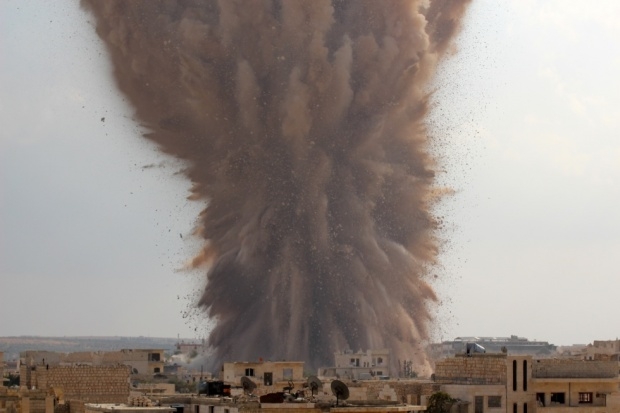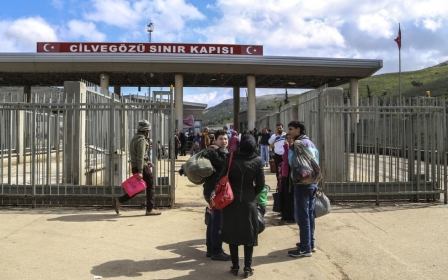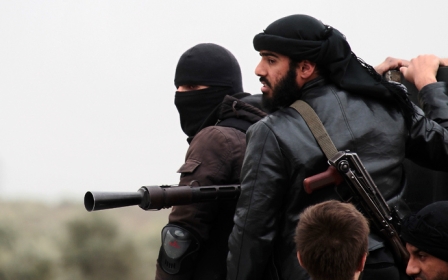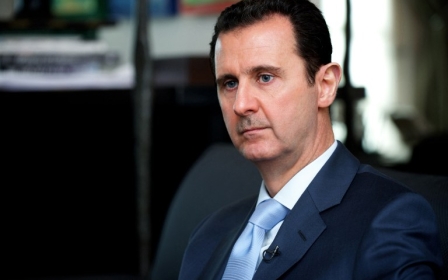Rebels seize Syria’s Idlib city from Assad forces

Syrian rebel groups on Saturday seized the city of Idlib, only the second provincial capital to be lost by President Bashar al-Assad’s forces in more than four years of war.
The capture came as UN Secretary General Ban Ki-moon expressed anger and shame at the world's failure to stop the conflict.
More than 215,000 people have been killed since anti-government protests, which erupted in March 2011, were repressed by President Assad leading to a brutal civil war.
The coalition that seized Idlib is made up of Al-Nusra Front, the official Syrian affiliate of al-Qaeda, and several other factions.
"Al-Nusra Front and its allies have captured all of Idlib," the Britain-based Syrian Observatory for Human Rights said.
"There is still a group of soldiers fighting in the security quarter of the city, but they will not be able to reverse the situation," Observatory director Rami Abdel Rahman added.
Nusra also announced the capture of the north-west city on its official Twitter accounts.
"Thanks be to God, the city of Idlib has been liberated," it wrote.
The group posted photos of its fighters in front of the governorate building, the city council, a local prison and a police station in the city.
Earlier, a government security source said "terrorist groups had infiltrated the outskirts of the city," but state media did not report Idlib's fall.
Official news agency SANA said only that "army troops were regrouping south of the city of Idlib in preparation to face an influx of thousands of terrorists coming from Turkey."
The government has regularly accused Turkey, a backer of the uprising against Assad, of providing support and sanctuary to "terrorists."
The first provincial capital to fall was Raqqa, in the north, which was seized by rebels in March 2013.
The rebels were subsequently ousted by the Islamic State group, which has made Raqqa the de facto Syrian capital of its self-proclaimed "caliphate" in Syria and Iraq.
The Observatory said street fighting had raged through the night after the rebels entered Idlib on Friday evening in an assault that began three days earlier.
Around 2,000 Al-Nusra and allied fighters took part in the battle, according to the Observatory, while government forces launched some 150 airstrikes in a bid to hold off the attack.
At least 130 people were killed in the fighting, according to the Observatory, which said some of the city's residents had fled.
Around 200,000 people lived in the city before the conflict, but the population has swelled since with Syrians displaced from other areas.
Idlib's fall leaves Assad with few remaining strongholds in the province, which borders Turkey.
Government forces are still present in the cities of Jisr al-Shugur and Ariha, a few small localities, the Abu Duhur military airport and five military bases.
Idlib's capture came as the UN's Ban spoke of his disappointment over the continuing death and destruction.
"I confess to you my anger and my shame," he told an Arab summit in Egypt.
"Anger at observing the Syrian government, extremist and terrorist groups and terrorists relentlessly destroying their country," he said.
"Shame at sharing in the collective failure of international and regional communities to decisively act to stop the carnage that has afflicted the Arab brothers and sisters of Syria."
New MEE newsletter: Jerusalem Dispatch
Sign up to get the latest insights and analysis on Israel-Palestine, alongside Turkey Unpacked and other MEE newsletters
Middle East Eye delivers independent and unrivalled coverage and analysis of the Middle East, North Africa and beyond. To learn more about republishing this content and the associated fees, please fill out this form. More about MEE can be found here.




